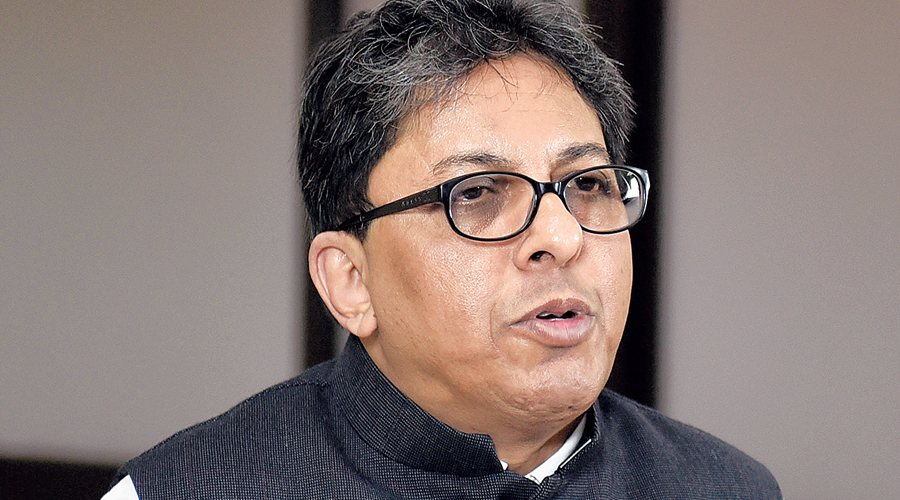State secretary of West Bengal, Alapan Bandopadhyay will now serve the state Chief Minister Mamata Banerjee as her chief adviser. Mamata Banerjee said that the state chief secretary has refused to accept the three months of extension offered to him and retired from his post on May 31.
Ms Banerjee announced that state home secretary H K Dwiwedi has been made the new state chief secretary and B P Gopalika has been made the new home secretary.
Alapan Bandopadhyay was in the middle of a tussle between the centre and the state, especially after the review meeting on cyclone Yaas. On Monday, the centre had sent a letter to Mr. Bandopadhyay asking him once again to report to the North Block on Tuesday. This letter came hours after Mamata Banerjee wrote to the centre stating that she would not release Mr. Bandopadhyay for the central deputation.
Also Read: What led to BJP’s defeat-Important highlights at the conclusion of the West Bengal election
Accusations and counter-accusations were triggered in the fall out of the review meeting on cyclone Yaas. Subsequently, the DoPT under the central government had issued an order of central deputation for Mr. Bandopadhyay, in a step which showed centre-state power struggle. For this purpose, he was ordered to report to New Delhi on the day of his retirement on May 31 and take a three month extension in central deputation.
Rule 6(1) of IAS Cadre rule, 1954-makes states sufferer to arbitrary actions by the centre
Basudev Banerjee, a former chief secretary criticized the decision of the central government stating that it was a misuse of Rule 6(1), the IAS Cadre rule, 1954.
Ardhendu Sen, another former state chief secretary said, “The state government is busy dealing with the pandemic and the aftermath of a natural disaster. Given the situation, how could the central government issue a transfer order to the chief secretary? This will definitely hinder the functioning of the state administration.”
Sen also stated that the instructions issued by the Union government at this time (of pandemic) are absolutely undesirable.
It has been observed that the Rule 6(1) of IAS Cadre rule, 1954 makes states deal with arbitrary actions taken by the centre unilaterally.
In January this year, in a PIL in the Supreme Court, lawyer Abu Sohel pleaded that Rule 6(1) be struck down. He had contended that because of the Rule, states have to bear the brunt of arbitrary actions taken by the Centre, while the Rule makes it difficult for the Centre to enforce its will on a state that refuses to back down. Ruling on March 1, a Bench of Justice L Nageswara Rao and Justice S Ravindra Bhat did not find any merit in the filed petition.
One must acknowledge that the central government led by BJP is in an uncomfortable position, ever since it has lost the state election. Apart from that, it is dealing with second wave of the Covid19, which was ravaged across the north Indian state of UP, the territory of Delhi and states like Maharashtra and Karnataka.
Also Read: TMC vs BJP-Giving too much attention on criticizing a non-existential opponent can cause problem
How the situation developed
Cyclone Yaas made a landfall on the east coast, when the centre has been managing the Covid19 and the outcome of defeat in the West Bengal assembly election. This was a chance for BJP leading the centre to man up in West Bengal. When Mamata Banerjee did not attend the cyclone review meeting with PM Modi and left after presenting her demand of Rs 20,000 crore, it left the centre with a bad taste. That essentially triggered the tug of war between the centre and the state.
Visibly, the image of BJP leaders was bruised due to this incident. But, it cannot be ignored that centre had called the leader of opposition in the state, Suvendu Adhikari of BJP in the BJP in the review meeting. It was clearly against the brief of such centre-state meeting, which was protested by Mamata Banerjee. Subsequently, the centre sent the order to Alapan Bandopadhyay, by offering him extension in his service by three months. Ultimately, Mr. Bandopadhyay refused to accept the offer of extension and retired on the officially mandated date.
Who exactly won this tug of war between West Bengal and centre, is open to observations by different sections of people, media and experts.





